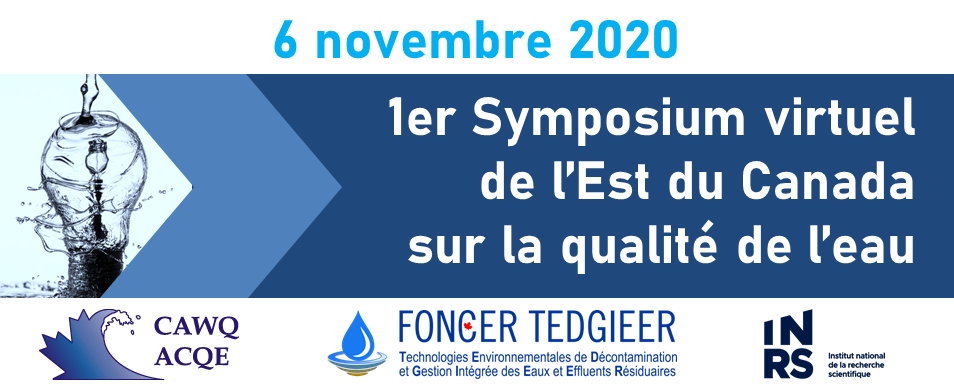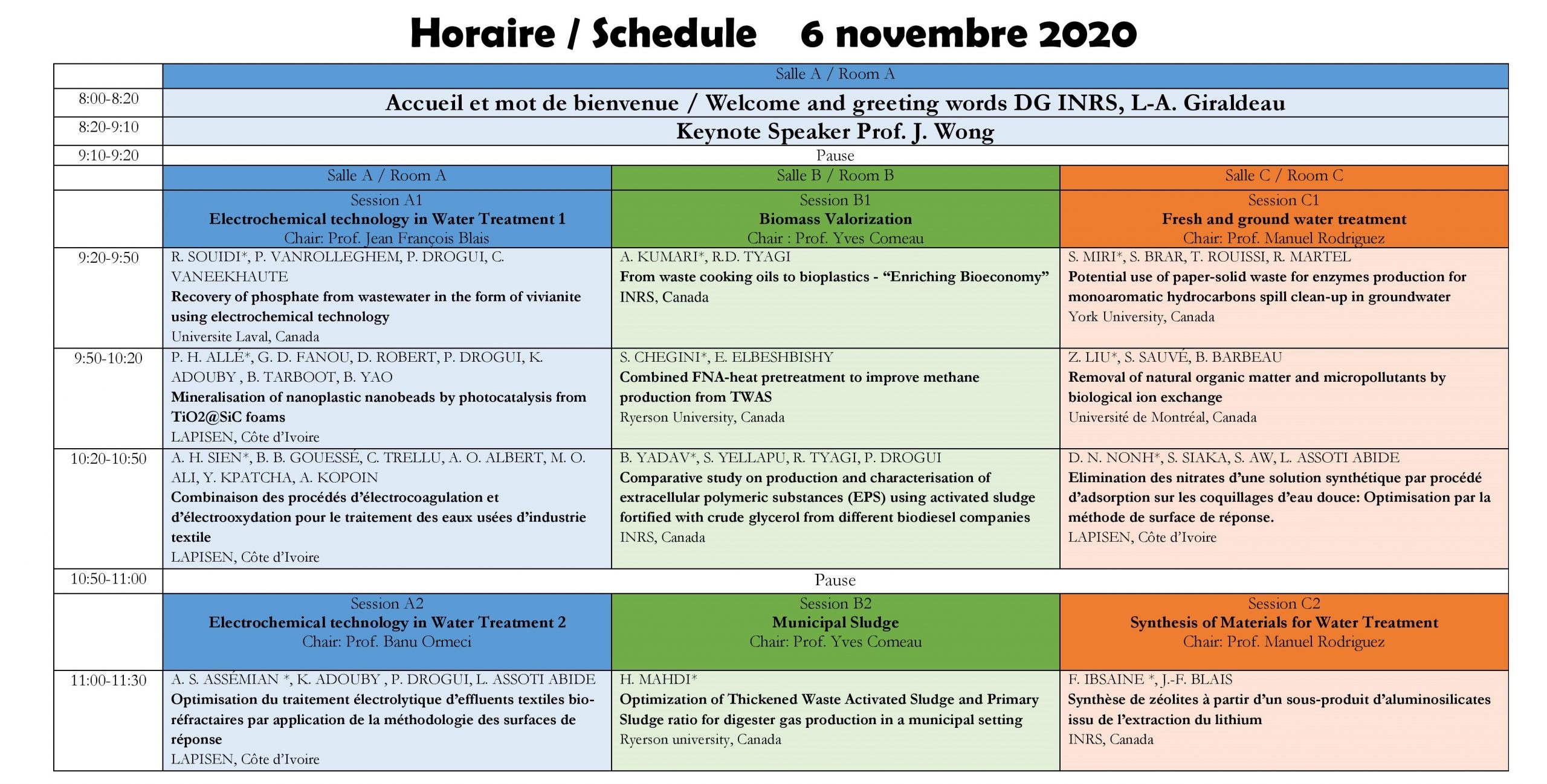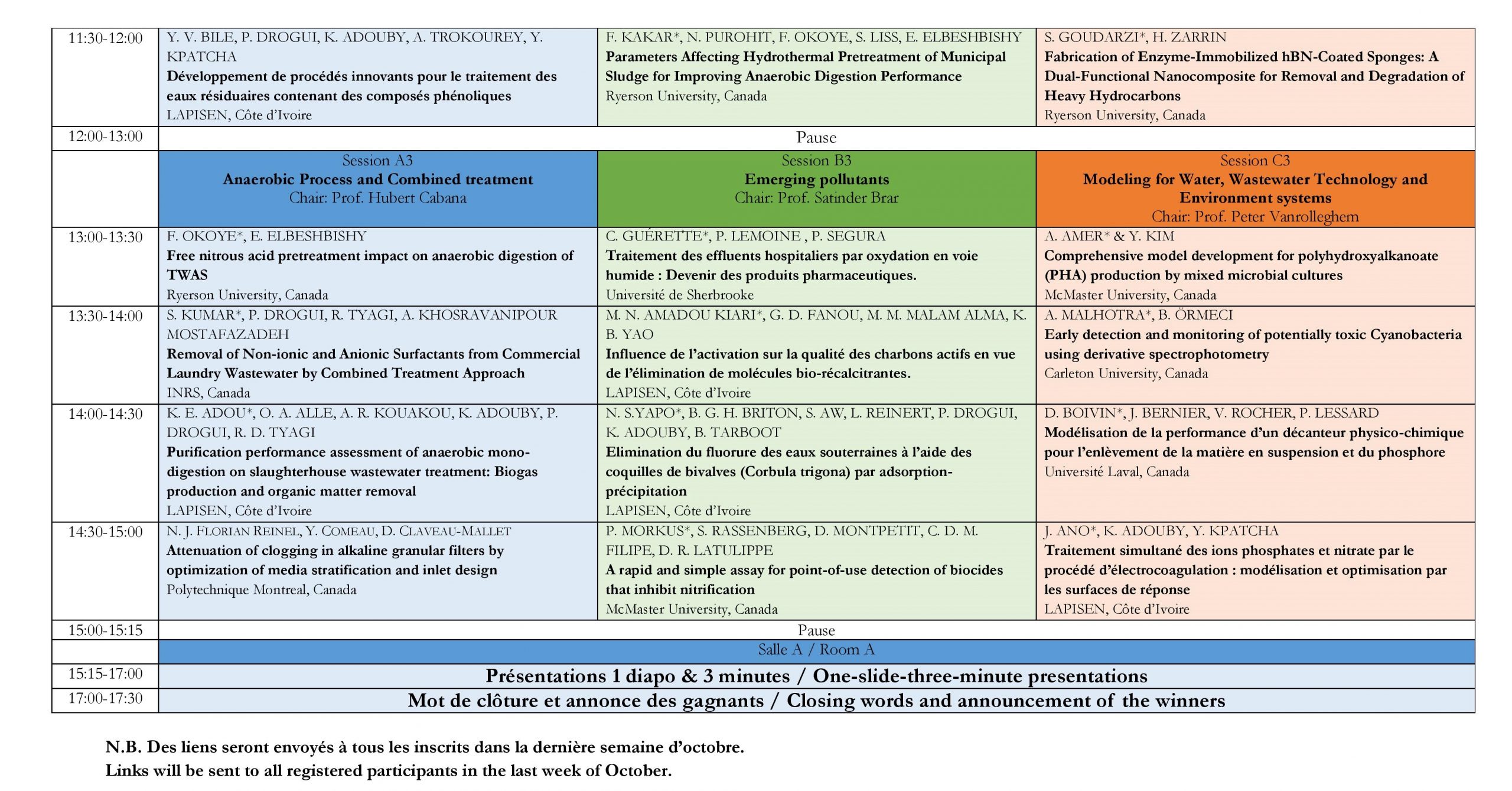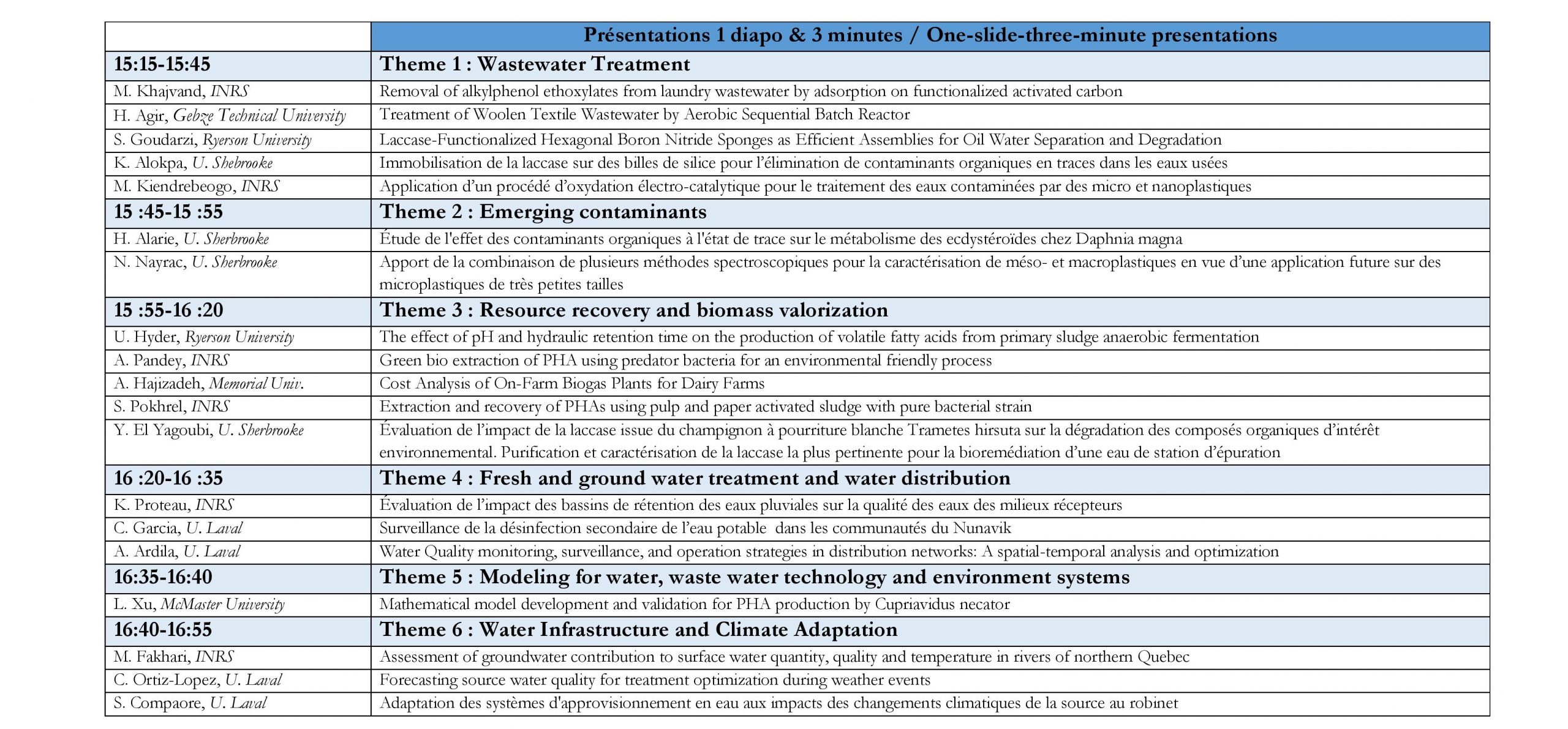Conférence annuelle 2020
tenue dans le cadre du

Mot du président du comité organisateur

Patrick Drogui, INRS
Le comité d’organisation et moi-même avons le plaisir de souhaiter la bienvenue à tous les participants au 1er Symposium virtuel de l’Est du Canada portant sur la Qualité de l’eau. Cet évènement est organisé en partenariat avec l’Association canadienne sur la Qualité de l’eau (ACQE) et l’INRS.
Les activités anthropogéniques sur notre écosystème et notre environnement n’ont jamais été aussi fortes et préoccupantes. Le développement de procédés avancés appliqués à l’environnement, à la santé, aux énergies renouvelables et à la récupération des ressources ainsi que la modélisation de la qualité des eaux et le développement de nouvelles méthodes analytiques d’identification des contaminants émergents sont en constante progression et font l’objet de recherches importantes. L’objectif de ce symposium est de faire un bilan des dernières percées scientifiques et techniques dans ces domaines.
Comme l’attestent le nombre des participants ainsi que leurs origines diverses, les recherches sur ces thèmes sont en plein développement, aussi bien au niveau des organismes de recherche publics et universitaires que de grands groupes industriels.
Nous souhaitons un agréable symposium à tous les participants et nous espérons aussi que les discussions pendant et autour des présentations contribueront à renforcer nos connaissances et développer des collaborations fructueuses dans les domaines qui seront traités.
Conférence plénière (en anglais)
Sustainable Food Waste Management
Organic waste disposal is posing a major threat to global environment and affects our food security. Globally, the food production accounts for lots of resources utilization (e.g. fossil based fertilizers and energy), while it is also the major cause for loss of 80% biodiversity, 70% freshwater resources and 30% greenhouse gas (GHG) emissions. However, one third of produced food is simply wasted without being consumed and subsequently being incinerated or sent to landfill, permanently loss from the nutrient cycle. Food waste is in fact our biological resources that still have residual intact energy, carbon, and major and minor nutrients that should be recycled to work towards a biocircular economy. Therefore, it is timely to develop an integrated biotechnology to re-route the resources in biowaste for production of fuels, energy and value added products. Efficient recycling of food waste will benefit and support the bio-economy concepts by converting biowaste into: (a) Bio-energy and Bio-fuels, that will greatly reduce the dependence on fossil fuel and the production cost of associated fuel/energy; (b) Bio-fertilizers, that can improve the soil health and reduce the use of fossil fuel based commercial fertilizer; (c) Bio-products, including new bio-products and industrial biochemical such as bio-pigments, bioplastics and etc.; (d) Bio-feed, that can be used for the production of animal feeds and fish feeds, reducing the arable land and water use. The biocircular economy approach not just reutilizes the biological resources in food waste but also reduces GHG emissions, provides more job opportunities, and reduces the waste treatment and disposal cost. However, the key issue is to select a technology or integration of technologies for food waste treatment should be based on local need, economy and availability of resources. In this presentation, the various innovative biological treatment technologies for the production of multiple end-products from food waste will be discussed with major research focus on bio-methane, bio-fertilizers and bio-lipid productions from food waste.

JONATHAN W.C. WONG
Institute of Bioresource and Agriculture
Department of Biology, Hong Kong Baptist University,
Hong Kong SAR, P.R. China
Horaire



Inscription
Les frais comprennent la participation au symposium et le livre des résumés.
Notez que les professionnels de l’eau qui ont 35 ans ou moins, ainsi que tous les étudiants de cycles supérieurs, sont considérés comme des JPEs.
JPEs membres de l’ACQE = Gratuit
JPEs non-membres (frais d’inscription + adhésion annuelle à l’ACQE*) = 70$
Membres de l’ACQE = 20$
Non-membres (frais d’inscription + adhésion annuelle à l’ACQE*) = 160$
* Ces frais incluent une adhésion d’un an à l’ACQE, ainsi qu’un abonnement d’un an au Water Quality Research Journal.
Pour vous inscrire et payer les frais, rendez-vous sur le site de l’ACQE
Concours
Afin de mettre en valeur les talents des Jeunes Professionnels de l’Eau (JPEs; 35 ans ou moins) menant des recherches sur la qualité de l’eau et d’encourager leur participation, plusieurs prix seront décernés :
- Prix Philip H. Jones pour la meilleure présentation orale : prix en argent de 400 $ pour la 1ère place et 300 $ pour la 2ème place. Les deux gagnants auront également un an d’adhésion à l’ACQE. Pour en savoir plus sur ce prix et les précédents lauréats, voir ici.
- Récompense pour la meilleure présentation « 1 diapositive & 3 minutes » : prix en argent de 200 $ pour la 1ère place et 100 $ au gagnant de la 2ème place. La présentation des gagnants sera enregistrée et présentée sur les sites internet et les chaînes YouTube de l’ACQE et du programme FONCER-TEDGIEER.
Pour participer aux prix des meilleures présentations, les auteurs doivent indiquer sur le formulaire d’information lors de la soumission de leur résumé s’ils sont actuellement des JPEs ou s’ils présentent des recherches de cycles supérieurs.
